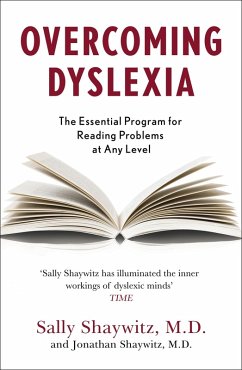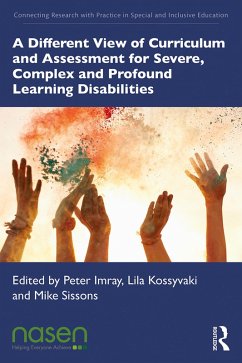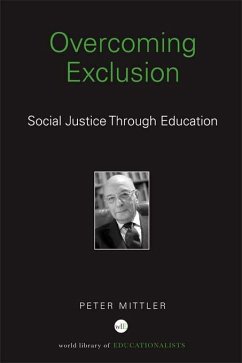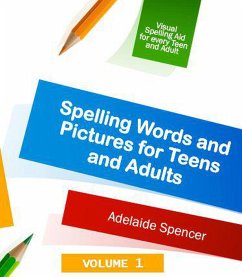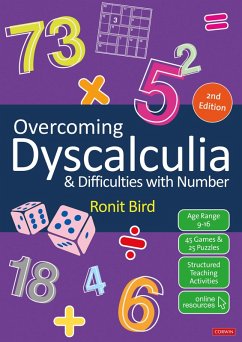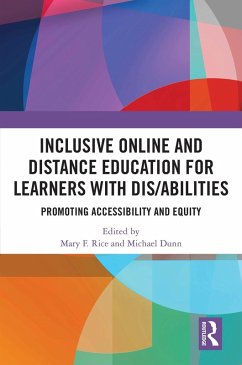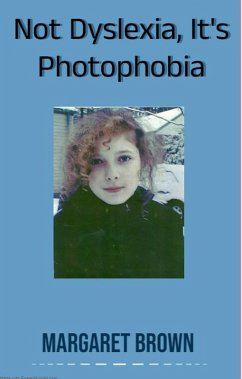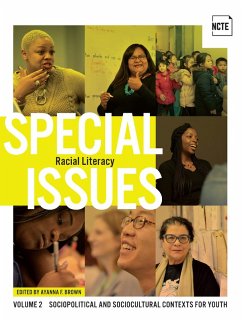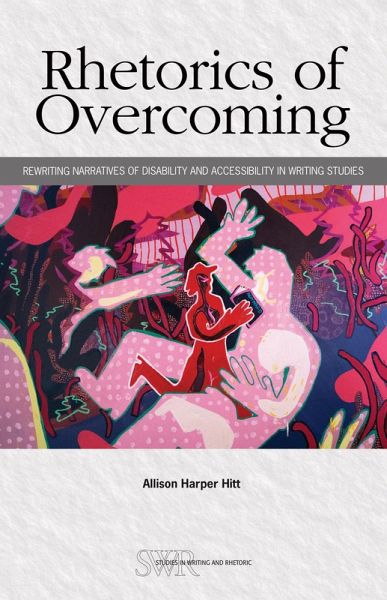
Rhetorics of Overcoming (eBook, ePUB)
Rewriting Narratives of Disability and Accessibility in Writing Studies
Versandkostenfrei!
Sofort per Download lieferbar
13,95 €
inkl. MwSt.
Weitere Ausgaben:

PAYBACK Punkte
7 °P sammeln!
Rhetorics of Overcoming addresses the in/accessibility of writing classroom and writing center practices for disabled and nondisabled student writers, exploring how rhetorics of overcomingthe idea that disabled students must overcome their disabilities in order to be successfulmanifest in writing studies scholarship and practices.Allison Harper Hitt argues that rewriting rhetorics of overcoming as narratives of coming over is one way to overcome ableist pedagogical standards. Whereas rhetorics of overcoming rely on medical-model processes of diagnosis, disclosure, cure, and overcoming for indi...
Rhetorics of Overcoming addresses the in/accessibility of writing classroom and writing center practices for disabled and nondisabled student writers, exploring how rhetorics of overcomingthe idea that disabled students must overcome their disabilities in order to be successfulmanifest in writing studies scholarship and practices.
Allison Harper Hitt argues that rewriting rhetorics of overcoming as narratives of coming over is one way to overcome ableist pedagogical standards. Whereas rhetorics of overcoming rely on medical-model processes of diagnosis, disclosure, cure, and overcoming for individual students, coming over involves valuing disability and difference and challenging systemic issues of physical and pedagogical inaccessibility.
Hitt calls for developing understandings of disability and difference that move beyond accommodation models in which students are diagnosed and remediated, instead working collaborativelywith instructors, administrators, consultants, and students themselvesto craft multimodal, universally designed writing pedagogies that meet students' access needs.
About the CCCC Studies in Writing & Rhetoric (SWR) Series:
In this series, the methods of studies vary from the critical to historical to linguistic to ethnographic, and their authors draw on work in various fields that inform compositionincluding rhetoric, communication, education, discourse analysis, psychology, cultural studies, and literature. Their focuses are similarly diverseranging from individual writers and teachers, to classrooms and communities and curricula, to analyses of the social, political, and material contexts of writing and its teaching.
Allison Harper Hitt argues that rewriting rhetorics of overcoming as narratives of coming over is one way to overcome ableist pedagogical standards. Whereas rhetorics of overcoming rely on medical-model processes of diagnosis, disclosure, cure, and overcoming for individual students, coming over involves valuing disability and difference and challenging systemic issues of physical and pedagogical inaccessibility.
Hitt calls for developing understandings of disability and difference that move beyond accommodation models in which students are diagnosed and remediated, instead working collaborativelywith instructors, administrators, consultants, and students themselvesto craft multimodal, universally designed writing pedagogies that meet students' access needs.
About the CCCC Studies in Writing & Rhetoric (SWR) Series:
In this series, the methods of studies vary from the critical to historical to linguistic to ethnographic, and their authors draw on work in various fields that inform compositionincluding rhetoric, communication, education, discourse analysis, psychology, cultural studies, and literature. Their focuses are similarly diverseranging from individual writers and teachers, to classrooms and communities and curricula, to analyses of the social, political, and material contexts of writing and its teaching.
Dieser Download kann aus rechtlichen Gründen nur mit Rechnungsadresse in A, D ausgeliefert werden.




